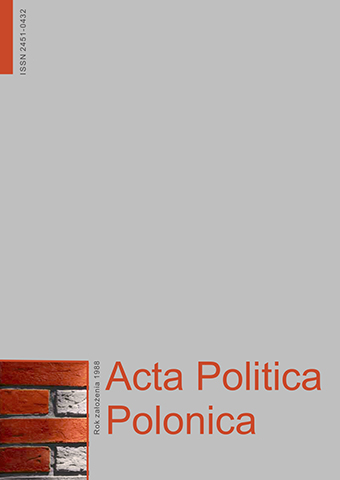
ISSN: 0867-0617
OAI





Issue archive /
1/2010 (23)
Praca kobiet i mężczyzn w ujęciu religii muzułmańskiej
(Working women and men in terms of the Muslim religion)
| Authors: |
Fuad
Jomma
Instytut Politologii i Europeistyki, Uniwersytet Szczeciński |
| Keywords: | Islam, women, men, work |
| Data publikacji całości: | 2010 |
| Page range: | 8 (209-216) |
Abstract
Over the past thirty years there has been a big change in cultural views in many Muslim countries. Tolerance and social acceptance of women’s rights has increasedconsiderably. Since the second half of the twentieth century, a woman steps out of the private and enters into public sphere – she studies, gains a profession, worksoutside home. Undoubtedly, there have been many factors that contributed to this development. For example, one can indicate women’s organizations fighting to extendwomen’s rights, encourage them to change, make progress, and some kind of rebellion against the Muslim rules. Also, the development of education and easieraccess to it for women as well as presence of leftist organizations stimulate this change. One cannot omit the impact of the modern technological and scientificbreakthrough with special stress on mass media (TV, Internet, newspapers). On the other hand, one cannot forget that a conservative approach to women’s work and role in society is often being abandoned because of economic situation of many families which live on or even below the poverty line. As a result, women are often forcedto get out of home in search for work, in order to provide for children. The change in approach is also connected to the increased demand for educatedwomen in the market – more and more families treat daughters’ education as an investment for their future. Thanks to that, women are more successful among men andare generally better partners. And because of that, the number of well educated women having good professions has been increasing. However, the labor market not offeringjobs for women seems to be the greatest obstacle. The percentage of unemployed women is much higher than the percentage of unemployed men, due to the limited number of jobs. They are not available for men, let alone for women.
Bibliography
| 1. | A.M.Y.M.R. Alqazwini, Sunen Ibn Maja, 883 r. (Tradycje Ibn Maja) – w jęz. arabskim. |
| 2. | Al-Abdulkarim F.A., Amal al-maraa: Praca kobiet, pogląd szariatu, http://saaid.net/PowerPoint/234.pps. (dostęp 18 .03.2008). |
| 3. | Al-hirsani M.H.: ala'ml fi alislam wdourh fi altnmiah aliktsadiah (Praca w islamie i jej rola |
| 4. | Almaruf A.A.: Fatach Albari Szereh sehih Albuchari, 1438 r. (Wyjaśnienie prawd Albuchariego) – w jęz. arabskim. |
| 5. | Alnisaburi M.H.Q.L.: Sehih Muslim, 864 r. (Prawdy Muslima) – w jęz. arabskim. |
| 6. | Alsalabi A.M.: Tarich Alhulafa alrashdin II, Trypolis 2004 (Życiorys Umar Ibn al-Chattab) – w jęz. arabskim. |
| 7. | Al-sheha A.: Muhammed, the Messanger of Allah, Al-Rijad 2006. |
| 8. | Altabarani S.A.: Arrad ala almurted, 873 r. (Odpowiedź na heretyka) – w jęz. arabskim. |
| 9. | Al-yusef M.: Amal al-maraa al-muslima (Praca kobiet muzułmańskich), http://www.saaid. |
| 10. | Azazi S.: Al-amal fi al-islam (Praca w Islamie), Egipt 2006. |
| 11. | Jomma F.: Kurdowie i Kurdystan, Gdańsk 2001. |
| 12. | Mrishid S.: Achlaqiyat alamal (Etyka pracy), ,,Alrijad”, 16.11.2005, nr 13598. |
| 13. | net/female/049.htm. (dostęp 15.03.2008). |
| 14. | Uregulowanie pracy kobiet, http://www.saaid.net/female/0115.htm (dostęp 15.03.2008). |
| 15. | w rozwoju ekonomicznym), Bejrut 2002 – w jęz. arabskim. |